Waste Not, Want Not: Tackling Food Waste and Methane Emissions
by Harry Tannenbaum, President and co-founder at Mill
Making global progress in combating climate change and rehabilitating the planet is largely about answering a simple question: how can we prevent waste?
Waste doesn’t exist in nature, and yet people create it everywhere. We’ve been trained to ignore it, or worse, believe it’s inevitable. Food waste, in particular, is a massive climate problem we all deal with every day. Nearly 40% of the food in the United States is wasted. That’s like going to the grocery store, buying five bags of food, and leaving two in the parking lot.
Not only is that a waste of money, but it’s also terrible for the planet. When food degrades anaerobically in landfills, it releases methane, which has 80X the warming power of CO2 over a 20–year period. If food waste were a country, it would be the third largest emitter in the world after China and the U.S.
For many of us, this is a problem we all—unfortunately—deal with on a regular basis: week-old leftovers, pizza a toddler threw on the floor, lettuce we optimistically bought and then forgot about in the back of the fridge. Who among us hasn’t wasted food? Who among us hasn’t felt bad about it?
Before you answer, here’s the good news: food doesn’t become trash just because you put your plate in the sink. Food waste is actually the dumbest climate problem, because we actually can fix this one. We don’t need to invent nuclear fusion to solve it—we just need to stop throwing food in the landfill.
To tackle this problem, however, we do need to reframe how we think about food, and how we think about the banana peel when we’re done with the banana. We need to start asking new questions, like: What if that food on the plate in the sink didn’t go to the trash, but stayed in the food system? What if returning food to the farm were just as easy as sending it to the landfill? What if a chicken could eat it? And what if this meant we could get rid of the sludge at the bottom of our trash bins once and for all?
We built Mill to make significant progress on answering these questions. It’s an entirely new system to prevent waste, starting with food. Our approach takes the food you can’t eat at home, conserves the nutrients, and sends it back to farms where it can feed chickens. It’s a practical and impactful way to take steps at home that are good for your kitchen and our planet.
Two fundamental shifts have paved the way for a system like Mill to take root: the first is decentralized infrastructure. Over the past ten years, energy options such as solar have transitioned from an inaccessible, massive offering to simple and affordable panels we can install on the roof of our homes. Across the industry, energy sources have moved from centralized structures, like power plants, to decentralized structures, like batteries and EVs. We predict a similar shift is coming for how we manage resources in our homes that we have historically categorized as waste, like food we can’t eat.
The second fundamental shift has been the rise of new technology that makes it easy to do the right thing. Food waste is a massive climate problem, but it’s also a pain in the kitchen: dripping garbage bags, fruit flies, and constant trips to the trash. Based on experience building products like the iPhone, iPod and Nest Learning Thermostat, our team has learned that innovative technology can change the way we live—and small habits at home can pack a big punch for people and the planet. For example, with Nest, you could turn the dial on your thermostat to the green leaf and save energy without even thinking about it. The result was billions of kilowatt hours saved, and grid-scale impact.
In other words, we need to make preventing food waste as easy as turning a dial in your living room. Technology has opened up opportunities for us to design solutions that can make a positive impact on the planet and cut down on your to-do list.
The success of this new approach relies on changing how we view waste both individually and systemically. A banana peel is still food, just not for humans. Converting a banana peel into food for animals can make agriculture more sustainable and efficient, and leaning into more efficient resource loops that preserve the nutrients in the food system can help us make progress in cutting methane emissions, keep food as food, and give us all fewer trips to the trash.
Food in landfills is one of the most solvable climate problems facing us today, and we know that reducing methane would have an immediate and significant impact on climate change. But there is no silver bullet. Changing the system will take the efforts of many others. That’s why, from the beginning, we’ve worked with leaders across the policy, academia, research, and industry sectors— from government officials and regulators, to technology leaders and NGOs, to farmers and leaders in agriculture. Everyone agrees we need waste-prevention innovation. Together with our members and the communities and policymakers we work with, we do believe we can make progress towards a better planet by outsmarting waste.
Food is only waste if we waste it.
✍️ The Draw-down
Weekly climate art by our MCJ Artist-in-Residence, Nicole Kelner.'
📢 Climate Action of the Week
Want to do more? Sign up for the next Climate Changemakers Hour of Action here.
A flurry of false rumors about the federal government banning gas stoves has had everyone talking about building decarbonization. Now, we want to flip the gas ban conversation to discuss the benefits of fully electric buildings and encourage similar laws at the state level. The most impactful way to do that is by meeting face-to-face with your state legislator—use our playbook to learn how.
🎙My Climate Journey Podcast
💰 Cody talked to Alex Blumberg, former co-host of the How to Save a Planet podcast and co-founder of Gimlet Media, about how he’s shifted from being good at podcasting to being experienced a company building, changes in the broader narrative on climate change, and the intersection of money and climate.
💡 Peter Reinhardt, co-founder and CEO of Charm Industrial, shared his journey into founding one of the most prominent companies in the climate tech space today, plus his thoughts on how certain key job functions may slightly differ in a climate tech company as opposed to a software tech company.
👩💻 Climate Jobs
For more open positions, check out the #j-climatejobs channel in MCJ Slack as well as our job board featuring 76 MCJ portfolio companies and over 500 open positions.
Automation and Controls Engineer at AMP Robotics (Louisville, CO)
Investment Associate at Avesta Fund (Denver/Boulder, CO)
Sr. Infrastructure Engineer, Cloud at Crusoe (Chicago, IL)
Associate, New Venture Creation in Climate at Deep Science Ventures (Remote/London)
Hiring Manager at Jaro Fleet Technologies (Oakland, CA)
Sales Development Representative at Lumen (Remote)
Customer Success Manager at Overstory (Remote)
Policy Lead, Europe at Patch (Remote/London)
VP of Engineering at Remora (Wxom & Livonia, MI)
Senior Outfitting and Project Engineer (Marine) at Seabound (Remote/London)
Technical Account Manager at Sense (Remote)
Document Controller at Lilac Solutions, Inc. (Salt Lake City, UT)
✨ Highlights

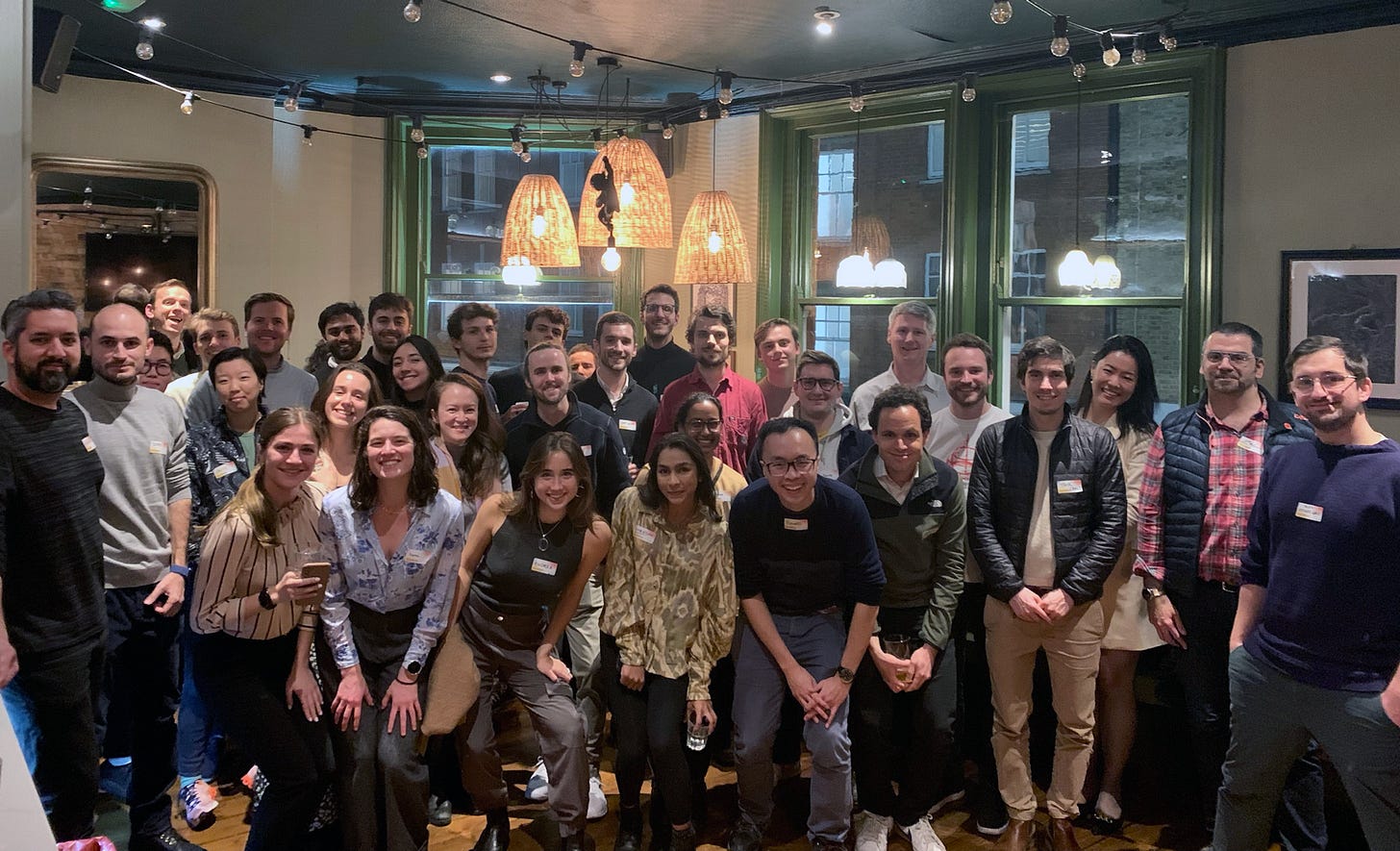
🗓 February Events
Click the event title for details & RSVP info. For more climate events, check out the #c-events channel in MCJ Slack.
💡 MCJ AMA with David Keith: Best known for his work on the science, technology, and public policy of solar geoengineering, David led the development of Harvard’s Solar Geoengineering Research Program. Post your questions for David in the #c-mcj-ama channel starting February 22, 2023. Details here.
🌃 Seattle Climate Tech Meetup: Come hang out with people working on climate or looking to make the switch. (2/15)
📚 MCJ Book Club, Speed & Scale Discussion: Join us for a discussion of the ideas presented in Speed & Scale by John Doerr. (2/15)
👭 Women in Climate Meetup: Monthly meetup for women who work in, or want to work in, climate. (2/22)
🍻 Minneapolis / St. Paul Meetup: Casual meetup for people interested in climate. (2/23)
♼ MCJ Monthly Idea Jam, Resource Use + Circularity: These sessions provide a chance for MCJ members to get help with roadblocks, meet co-founders or future employees, connect with investors, or people working on similar topics. (2/24)
🇨🇦 Toronto Climate Tech Social: Everyone is welcome to join the networking, discussion, and kick off this full potential community in Toronto. This is not a MCJ members exclusive event, so feel free to register and bring along +1s/2s/3s! (2/27)
🎨 Climate Art Workshop with Nicole Kelner: Pop in and paint with MCJ Artist-in-Residence. (2/28)
MCJ Climate Voices is a free weekly email curating news, jobs, My Climate Journey podcast episodes, and other noteworthy happenings in the MCJ member community.
💭 If you have feedback or items you’d like to include, feel free to reach out.
🤝 If you’d like to become an MCJ community member, apply today.


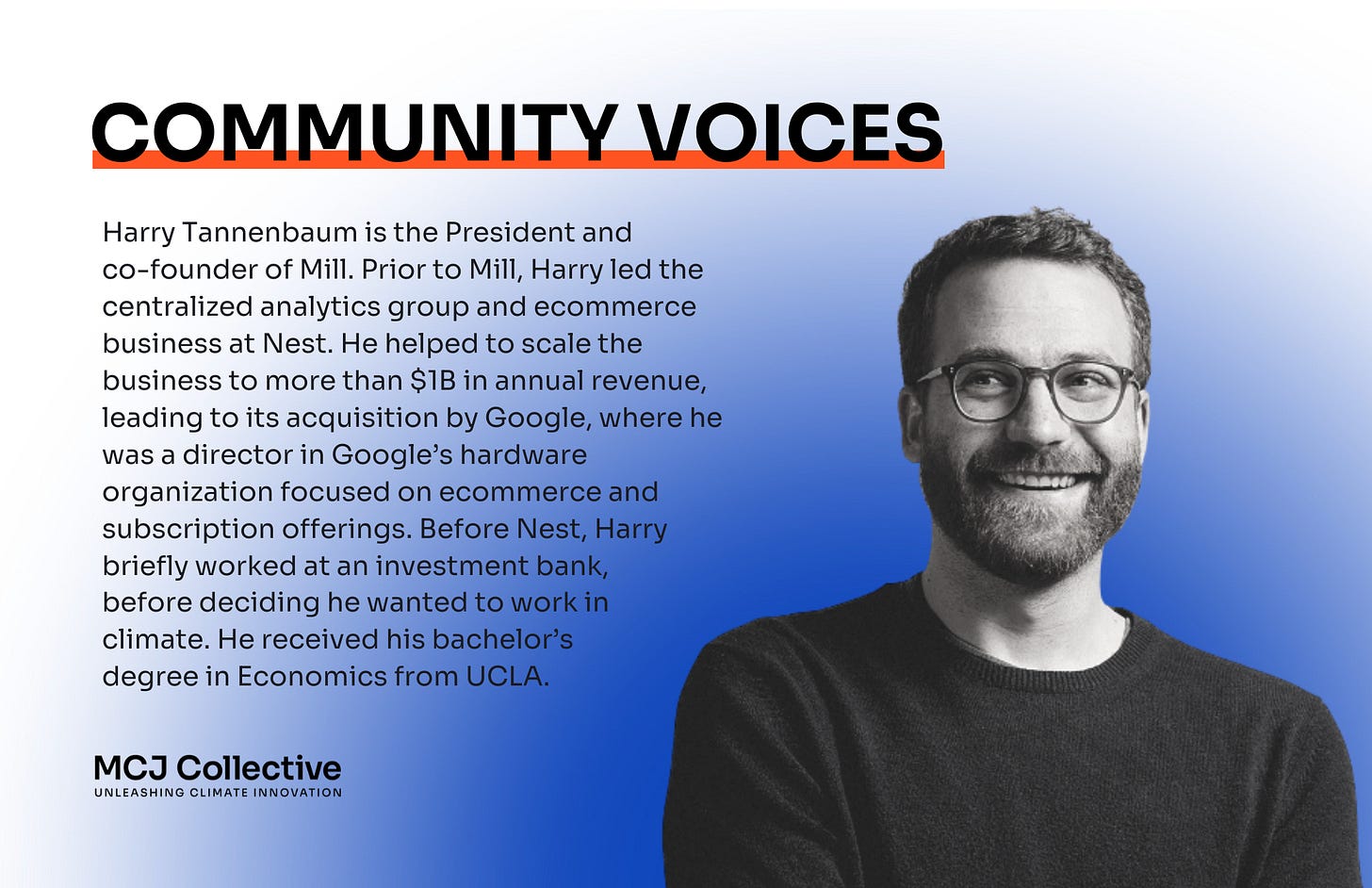
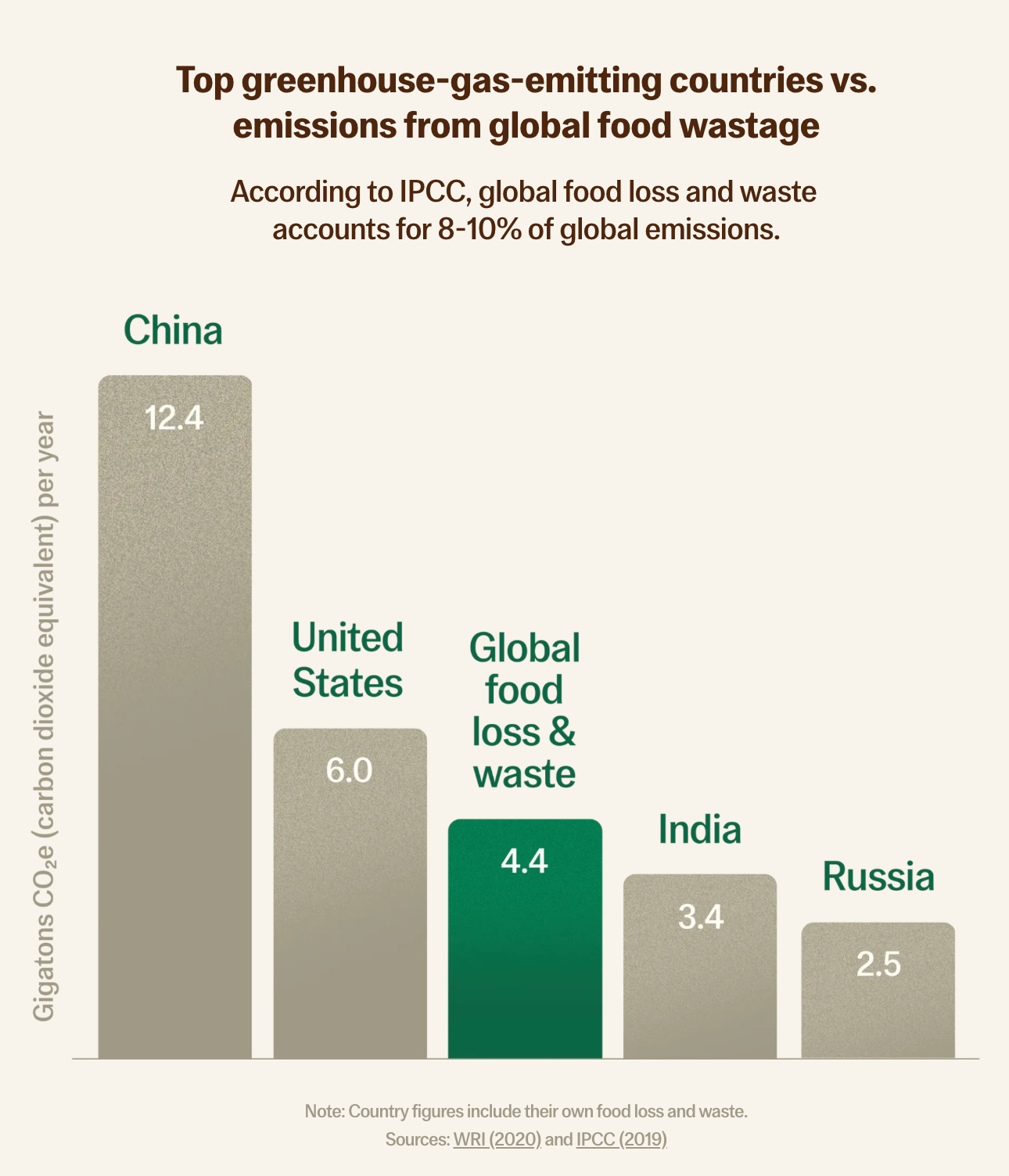
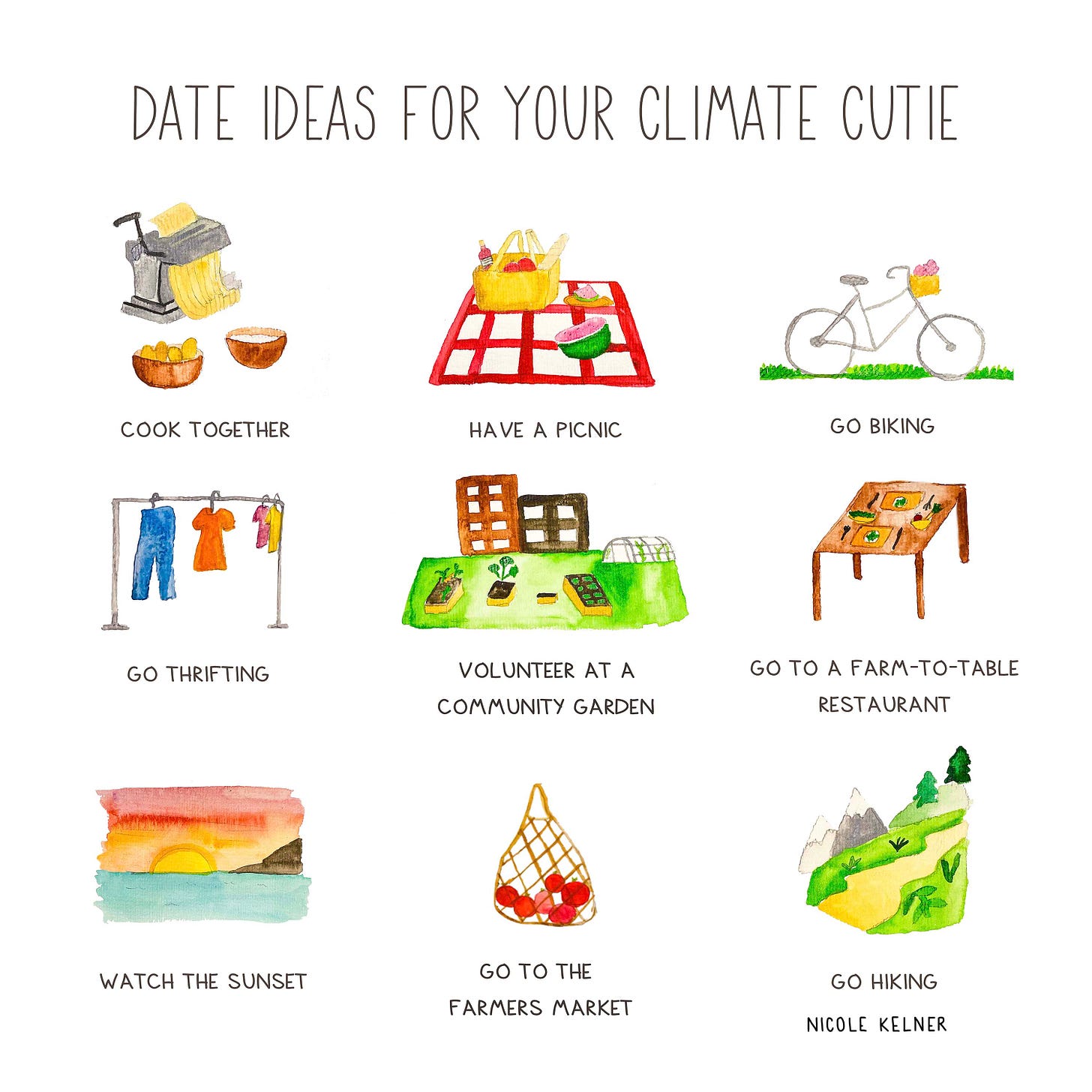
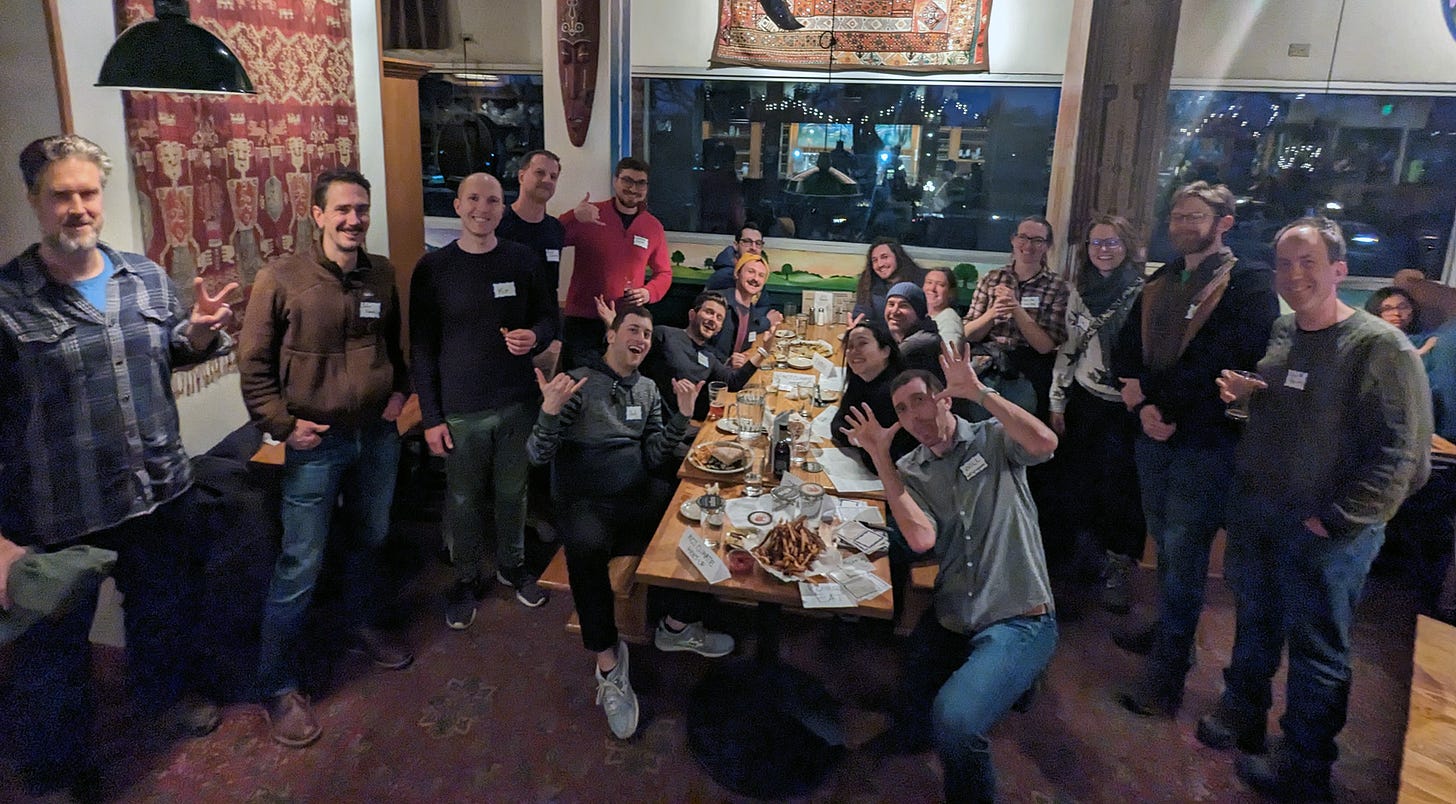
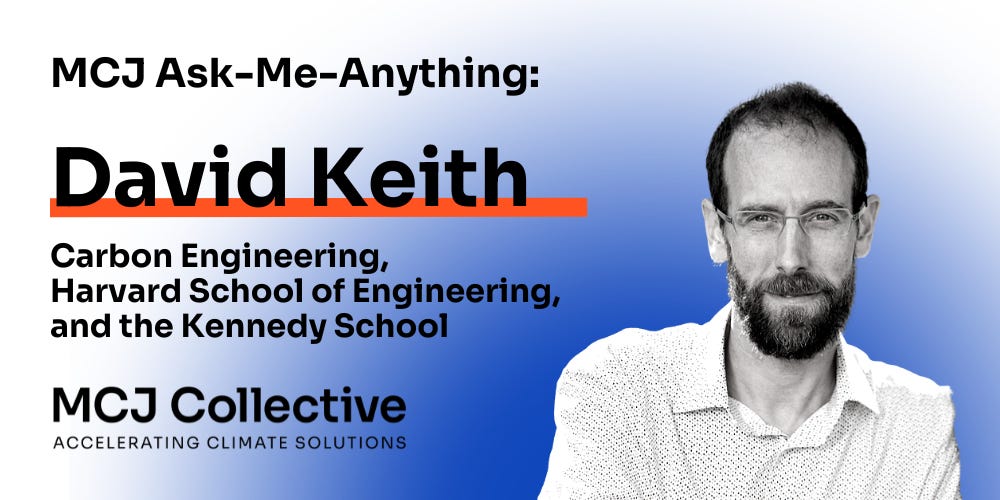
Thanks for this edition.
Food waste is a massive problem indeed. I love the work that Olio, a food sharing app is doing. They have an ambition plan to reach 1 billion people by 2030 and help reducing the hunger in the world, climate crisis, etc.